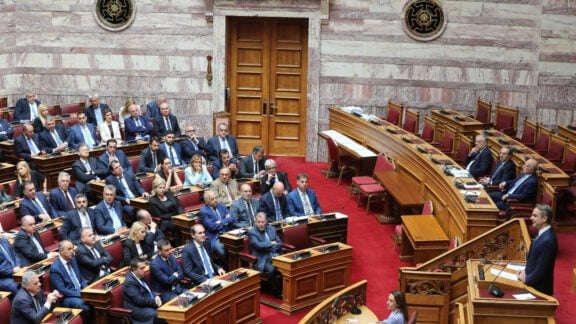The decision by the Papandreou government to introduce a new law that will grant citizenship to second-generation immigrants in Greece was applauded last week by both migrants and groups that promote their rights.
The Cabinet approved a draft law that would allow children born in Greece to parents who are immigrants, one of whom must have been living in the country legally, to apply for Greek citizenship.
“It is not just the issue of legalization. It is that we will no longer be invisible; our existence in Greece will be recognized,” said Nikodimos Maina, a second-generation immigrant and the publisher of a magazine called Asante. “Now we will be in a position to do the best we can for ourselves and our parents,” he added. “We can help so that all together we can build a better country because this is the only one that we know and we want to stay here.”
Second-generation immigrants are going to be given the right to claim Greek citizenship and vote in the country’s elections, the Cabinet decided last week.
In what will be groundbreaking legislation for Greece, the proposed law would allow some 250,000 children who have been born in the country to migrant parents to call themselves Greek.
Under the draft law, now open to public consultation, if one of the child’s parents has been living in Greece for at least five years in a row, then their son or daughter will be able to claim citizenship.
This right will also be available to children who have attended the first three years of primary school in Greece or have studied at Greek schools for a total of six years. The Interior Ministry estimates that if the law is passed before next year’s municipal elections, then 150,000 second-generation immigrants will be able to vote in the polls.
The bill also proposes that foreigners living and working in Greece legally for five consecutive years will be able to be naturalized, allowing them to vote and run in local elections but not general elections.
Citizens’ Protection Minister Michalis Chrysochoidis said that police have already been instructed not to arrest or deport second-generation immigrants over paperwork discrepancies.
New Democracy accused the government of ignoring the significance of awarding someone citizenship, while the nationalists Popular Orthodox Rally (LAOS) accused PASOK of “distorting the electoral body.”
“This heralds a new era for immigrants and Greek society, which can now be called a society of equal rights,” said public advocacy lawyer Vassilis Chronopoulos.“The bill shows clear progress from the simple resident’s permits that were given to first-generation immigrants to the granting of citizenship, which solves the problems of the second generation.”
The general secretary of the Greek Union for Human Rights (EEDA), Yiannis Ioannidis, said the bill was “revolutionary.” However, he added that the government must re-examine the 900-euro fee that immigrants must pay for long-term residence papers.








